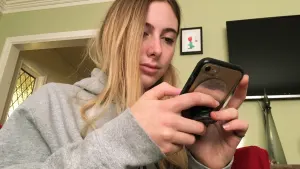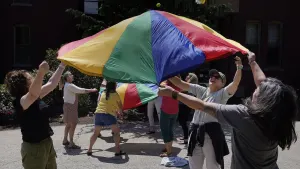More Stories
Pfizer announced this morning that it has submitted a request to the U.S. Food and Drug Administration for Emergency Use Authorization of its COVID-19 vaccine in children under 12.
In a tweet, Pfizer said, "We’re committed to working with the FDA with the ultimate goal of helping protect children against this serious public health threat."
The announcement comes after the company announced positive results from a pivotal trial on Sept. 20, 2021. In the trial, which included 2,268 participants 5 to 11 years of age, the vaccine demonstrated a favorable safety profile and elicited robust neutralizing antibody responses using a smaller two-dose regimen. These results were comparable to those recorded in a previous Pfizer-BioNTech study in people 16 to 25 years of age who were immunized with a larger dose.
Now the FDA will have to decide if there’s enough evidence that the shots are safe and will work for younger children like they do for teens and adults. An independent expert panel will publicly debate the evidence on Oct. 26.
One big change: Pfizer says its research shows the younger kids should get a third of the dose now given to everyone else. After their second dose, the 5- to 11-year-olds developed virus-fighting antibody levels just as strong as teens and young adults get from regular-strength shots.
While kids are at lower risk of severe illness or death than older people, COVID-19 does sometimes kill children and cases in youngsters have skyrocketed as the extra-contagious delta variant has swept through the country
“It makes me very happy that I am helping other kids get the vaccine,” said Sebastian Prybol, 8, of Raleigh, North Carolina. He is enrolled in Pfizer’s study at Duke University and doesn’t yet know if he received the vaccine or dummy shots.
“We do want to make sure that it is absolutely safe for them,” said Sebastian’s mother, Britni Prybol. But she said she will be “overjoyed” if the FDA clears the vaccine.
Pfizer studied the lower dose in 2,268 volunteers ages 5 to 11, and has said there were no serious side effects. The study isn’t large enough to detect any extremely rare side effects, such as the heart inflammation that sometimes occurs after the second dose of the regular-strength vaccine, mostly in young men.
If the FDA authorizes emergency use of the kid-sized doses, there’s another hurdle before vaccinations in this age group can begin. Advisers to the Centers for Disease Control and Prevention will decide whether to recommend the shots for youngsters, and the CDC will make a final decision.
AP wire services contributed to this report.
More from News 12
1:28

5 simple steps for long-term benefits to your health and heart
1:32

8 tips for working safely during hot weather
3:31

Guide: Ways to set your child up for financial success
3:18

Guide: The importance of good sleep and how to get it

Guide: Mental health resources available in the tri-state
9:36
